The theme of this year’s International Women’ s Day is #PressForProgess highlighting the fact that it will take 217 years to close the gender pay gap.
My Mother, Gen, (Senior Bush on Instagram) can attest to the fact that she has been pressing for progress for 30 years. Similarly she has been insistently ironing, compellingly steaming, tacking for victory, sewing for success and beading for Britain.
The work of a busy bridal shop alterations room is constant, the skilled staff hard to find, the training nonexistent in the British education system and the work such a dark art as to be barely understood by the clients who experience it.
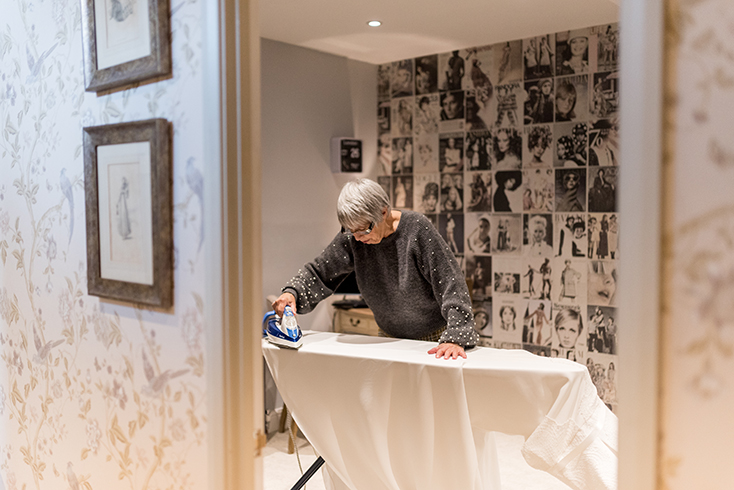
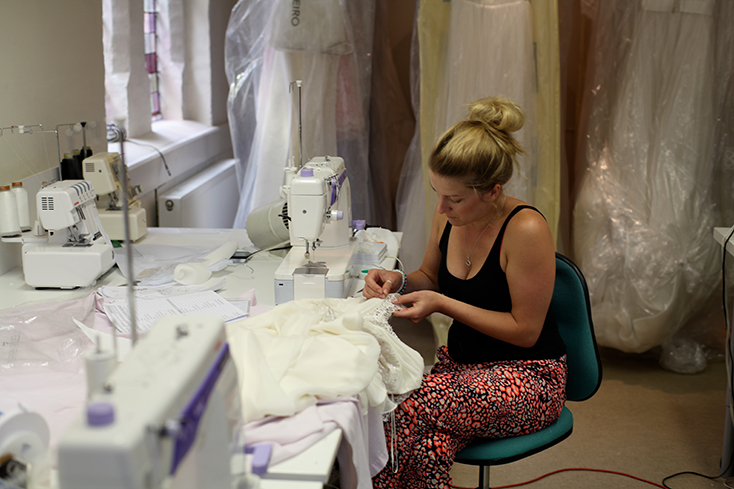
The terrible truth about these wonderfully skilled women is that, country wide, they are also “pinning for peanuts.”
Maria Grazia Chiuri, Creative Director of Dior referenced Rozsika Parker’s The Subversive Stitch: Embroidery and the Making of the Feminine in the moodboard for her latest fashion show. Arguably this could be an elegant leap onto the #metoo/#timesup bandwagon much like producing Dior’s £500 ‘We Should All Be Feminists’ T shirt…
However that aside, the campaign for gender parity is helped quite considerably by the legions of famous silence breakers that are both well dressed and beautifully earnest. I was bought up idolising the Greenham Common Women; if it now takes the bewitching Emma Watson to create the ripples so be it.
The impact of the Dior reference to The Subversive Stitch however had real resonance for me. Recently I wrote an article protesting against another casual, off the cuff dismissal of my ‘trade’ this time shockingly, by a card-carrying feminist publication. Another case of Miss Bush shouting into the void; even I couldn’t quite crystallise what I wanted to say. Dior helped me.
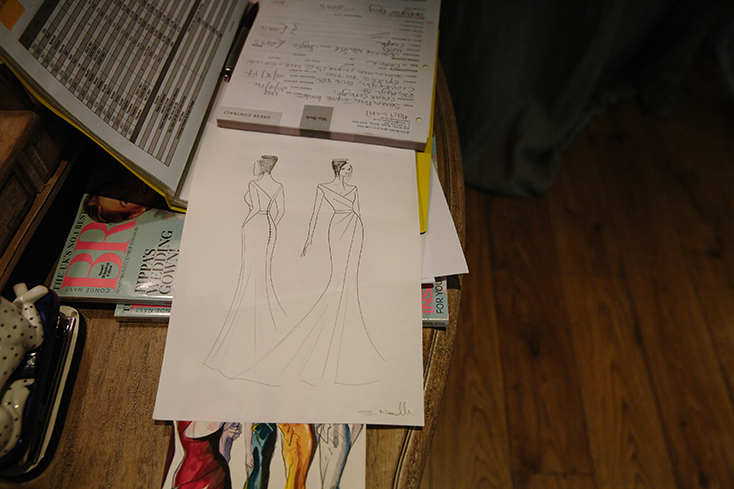
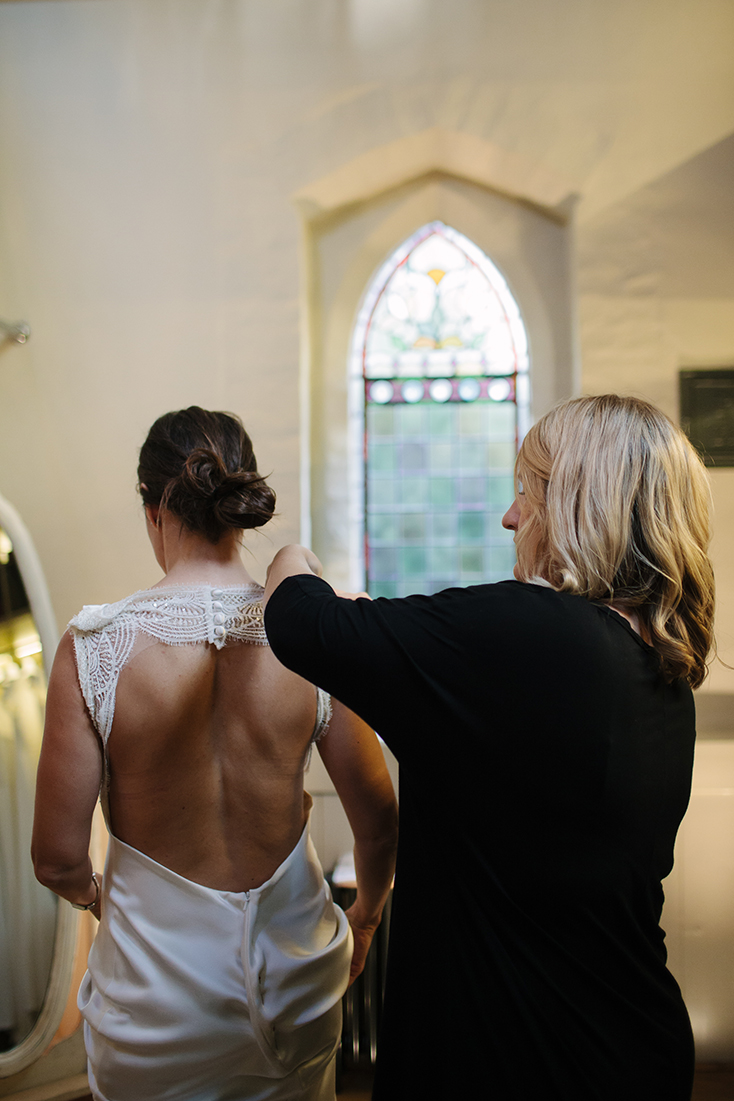
Constantly what seamstresses, alteration hands & fitters do is dismissed as feminine pastime. Like the art of embroidery, as discussed in The Subversive Stitch, because feminine creativity and skill has been historically designated a craft rather than fine art as opposed to the masculine arena of painting. Certainly sewing is seen as something that is to be enjoyed by the worker as a ‘pin-money’ job – not a career. Shockingly the service is often undertaken unpaid by female boutique proprietors. Unlike the thrill of a dress purchase the alteration service is a charge to be bartered over, a resented extra despite being the most highly skilled bespoke service and a separate stand-alone product.
A quick, and seriously unscientific, poll across my various private trade Facebook groups, covering the most prestigious high end city shops to the cosy familiar local boutiques reveals that on average an incredible couture level seamstress is paid on average £20k less a year than a general builder.
Whether our seamstresses are ‘on the books’ or subcontractors an entire industry of female genius is under-valued, misunderstood and the gulf between what clients expect to pay, what they do pay and the non-existent mark up on their salaries – whether freelance or not – is startling.
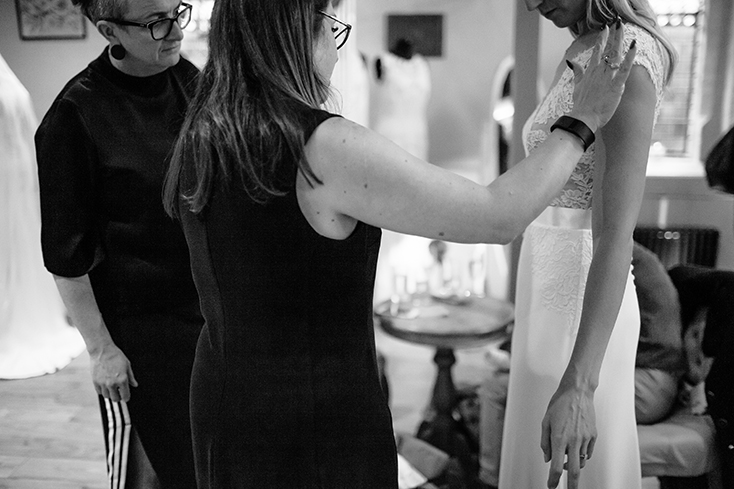
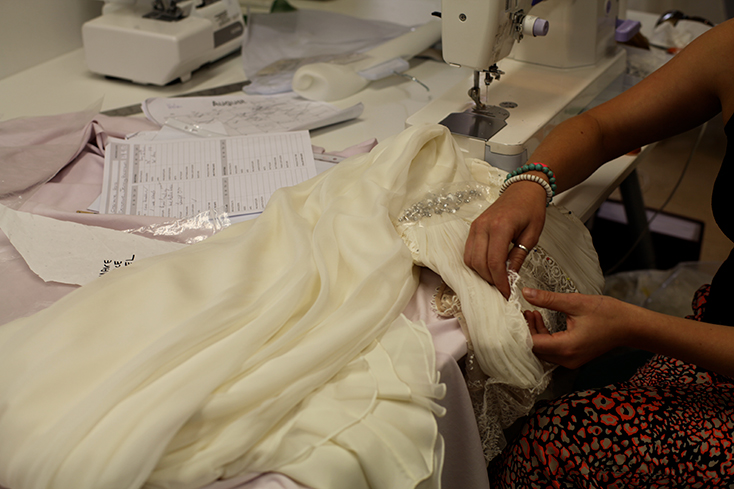
The economics of alterations
- Most made to order dresses and off the peg will need alterations of some kind. Like buying a carpet there is one cost for the product and one for the fitting.
- You can’t do it… not being mean but try standing in a dress and pinning your own hem
- You can’t sew
- And neither can anyone you know
- Points 2, 3 and 4 in any other industry, where skills or goods were so rare, would result in sky rocket prices on the economic principle of scarcity. At best most bridal boutiques operate on a cost neutral basis for alterations.
- When you order a fitted carpet for a room the room is usually pretty square and doesn’t change. Brides do, all the time. Addressing changes in heel height, design preferences, juice cleanses & gestation are all in days work for our production teams
- Busts & bustles – post production essentials like fitted cups and hands free dancing solutions have to be judged on a dress-by-dress, bride-by-bride basis
- Alterations can’t be free. Like a golf club or gym; you pay your membership and certain products and services are included. In your wedding boutique this equates to the dress, the advice, the stylists, the space, the emotional support. The experts, whether golf pros & PTs or couture grade seamstresses are extra.
On International Women’s Day I would like to thank;
Gen, Jean, Barbara, Claire, Janet, Annette, Tracey, Liz P, Elizabeth, Alla, Helen, Laurie, Sandra, Mandy & the newest member of the team, Jo.
These are the names behind the designer brands, the strength behind Miss Bush. Gen & I have strived to create a female first environment, offered flexible working hours & conditions that fit with child care, caring for elderly relatives, divorce, pregnancy, menopause, serious illness & bereavement. In return we have had the commitment & companionship of an extraordinarily talented group of women.
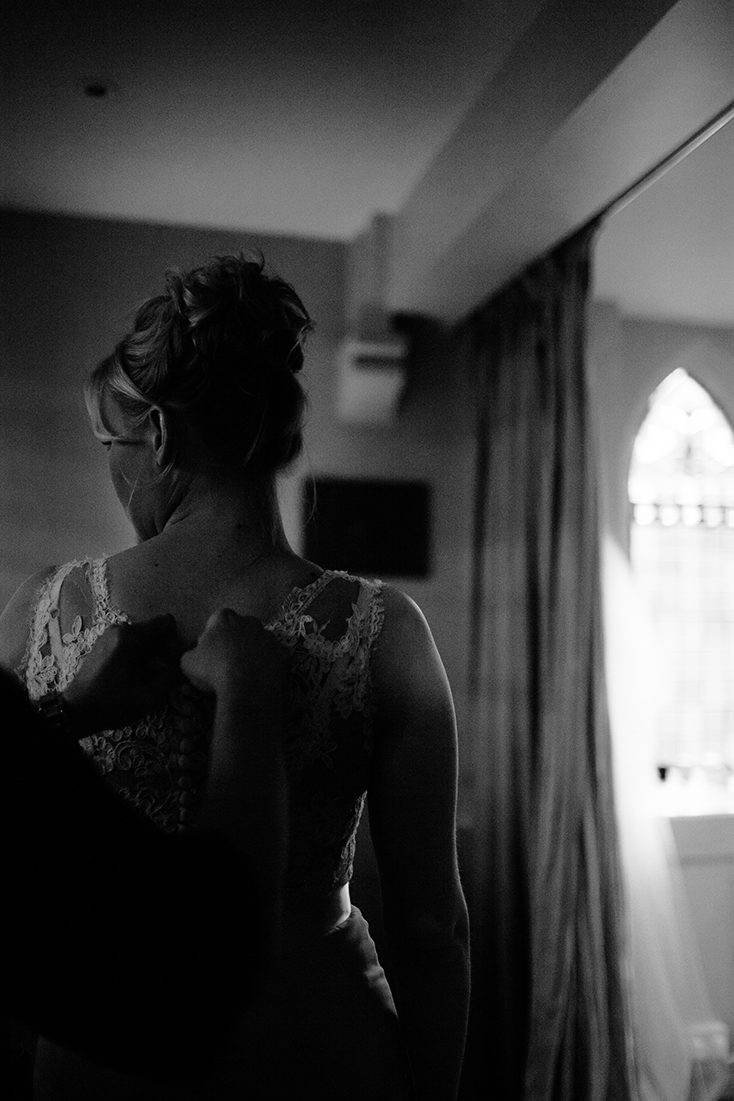
There is a skills shortage in our industry, Miss Bush has been lucky to attract and retain highly talented women on a living wage. In my brief poll there were also women who feel unable to charge for their own work. If this was any other industry than bridal there would be outcry. If we were forcing other women to work for nothing there would be justifiable claims of modern day slavery.
On International Women’s Day I want to highlight the incredible skill we have in our industry and the huge lack of self esteem.
#PressForProgress on this.
Emma x



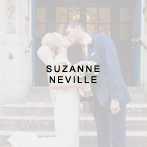











































29 responses to “Women’s work and the feminine pastime – International Women’s Day”